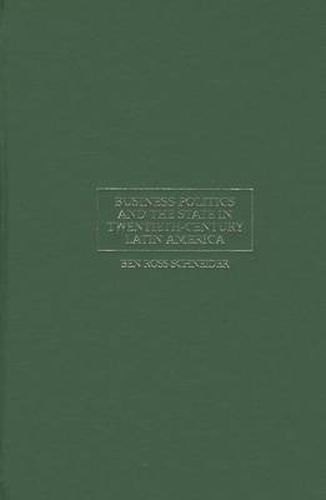Readings Newsletter
Become a Readings Member to make your shopping experience even easier.
Sign in or sign up for free!
You’re not far away from qualifying for FREE standard shipping within Australia
You’ve qualified for FREE standard shipping within Australia
The cart is loading…






This is the first systematically comparative and historical analysis of the incorporation of business into politics in Latin America, examining business organizing and political activity over the last century in five of the largest, most developed countries of the region. Why did business end up better organized in Chile, Colombia, and Mexico than in Argentina and Brazil? The explanation for the surprising cross-national variations lays neither in economic characteristics of business nor broader political parameters, but in the cumulative effect of actions of state actors. The book also considers the consequences of these differences in organization and finds that stronger encompassing associations offer government officials opportunities for concerted policy making with business that can enhance policy implementation. The strong hand of the state in organizing business has important implications not only for theories of collective action, but also for our understanding of civil society and its potential to promote democratization.
$9.00 standard shipping within Australia
FREE standard shipping within Australia for orders over $100.00
Express & International shipping calculated at checkout
This is the first systematically comparative and historical analysis of the incorporation of business into politics in Latin America, examining business organizing and political activity over the last century in five of the largest, most developed countries of the region. Why did business end up better organized in Chile, Colombia, and Mexico than in Argentina and Brazil? The explanation for the surprising cross-national variations lays neither in economic characteristics of business nor broader political parameters, but in the cumulative effect of actions of state actors. The book also considers the consequences of these differences in organization and finds that stronger encompassing associations offer government officials opportunities for concerted policy making with business that can enhance policy implementation. The strong hand of the state in organizing business has important implications not only for theories of collective action, but also for our understanding of civil society and its potential to promote democratization.